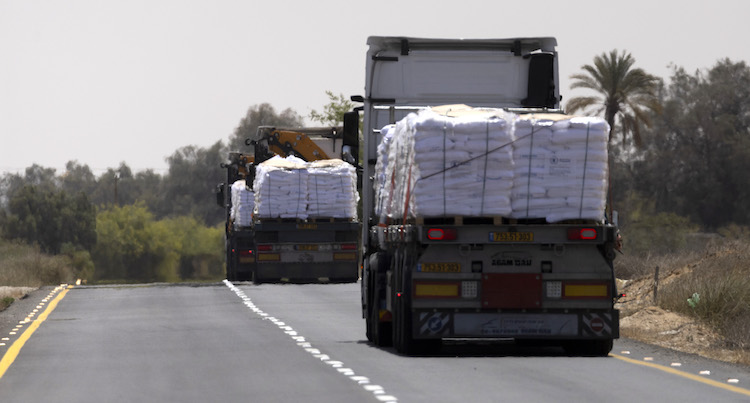Pressure on Israel appears to be increasing from all directions. Pressure to do what? That part isn’t clear.
The Trump administration doesn’t like seeing the images of suffering out of Gaza, but the president appears supportive of the plan to renew aid to the enclave, so the U.S. is at least acting rationally.
In contrast, today a joint statement was released by the UK, France, and Canada. It does not make any sense at any point. Let’s break down its most confusing demands:
“We call on the Israeli Government to stop its military operations in Gaza and immediately allow humanitarian aid to enter Gaza. This must include engaging with the UN to ensure a return to delivery of aid in line with humanitarian principles.”
Why? Who cares if the UN is involved? The “principle” of humanitarian aid that matters is getting people the aid. The UN does not accomplish this because it allows the aid to get to Hamas, which then withholds it from civilians. Then there’s UNRWA’s enmeshment with Hamas itself. The UN, therefore, has not been “in line with humanitarian principles” during this war. If the UK, France, and Canada were expressing honest concerns, they would be demanding that the UN be excluded from the aid delivery.
“Israel suffered a heinous attack on October 7. We have always supported Israel’s right to defend Israelis against terrorism. But this escalation is wholly disproportionate.”
Only the first of those three sentences is accurate. These countries have certainly not always supported Israel’s right to defend itself. In fact, what usually happens is that these countries issue condemnations of Israeli actions prefaced by the assurance that they support Israel’s right to defend itself. Just like this letter.
As for the escalation being disproportionate: I do not expect everyone on social media to understand the concept of proportionality in war. But I do expect the leaders of Western governments to know the meaning of the words they use. This isn’t some pedantic debate over a term, either: The letter clearly associates the concept of disproportionality with what “Israel suffered” on Oct. 7.
In other words, those countries are not only classifying Israel’s counteroffensive as retributive; they are also offering an official declaration of approval for the concept of retributive warfare: If someone hits you, hit him back, and then both of you stop.
This war isn’t a playground tit-for-tat. Hamas launched this war and took captives, and it has neither surrendered nor returned all the captives. Of course the war isn’t over. Indeed, Hamas has made clear that its war will go on in perpetuity. Israel has no power to end this war alone.
And yet, the statement threatens: “If Israel does not cease the renewed military offensive and lift its restrictions on humanitarian aid, we will take further concrete actions in response.” So Israel must unilaterally disarm during wartime, then. Good luck convincing anyone to do that.
“It is a ceasefire, the release of all remaining hostages and a long-term political solution that offer the best hope of ending the agony of the hostages and their families, alleviating the suffering of civilians in Gaza, ending Hamas’ control of Gaza and achieving a pathway to a two-state solution.”
“Ending Hamas’s control of Gaza”—why didn’t anyone think of that before? Just call a cease-fire and ask Hamas to leave! What are the Israelis waiting for?
When the leaders of France, the UK, and Canada imagine the implementation of the settlement they are advocating here, what specifically is envisioned for the part where they end Hamas’s control of Gaza? Who will be ending Hamas’s control of Gaza, and how will they be doing so?
The answer is that if Hamas’s control of Gaza is to end, it will be because Israel ends it. Which is what the IDF is doing now. Which is what the governments of the UK, France, and Canada are strenuously objecting to.
A random assortment of words would make more sense than this statement. It is a mixture of falsehoods and contradictions. War is a serious matter, and these three countries ought to find someone in their ranks willing to take it seriously, instead of whoever wrote this letter.


















